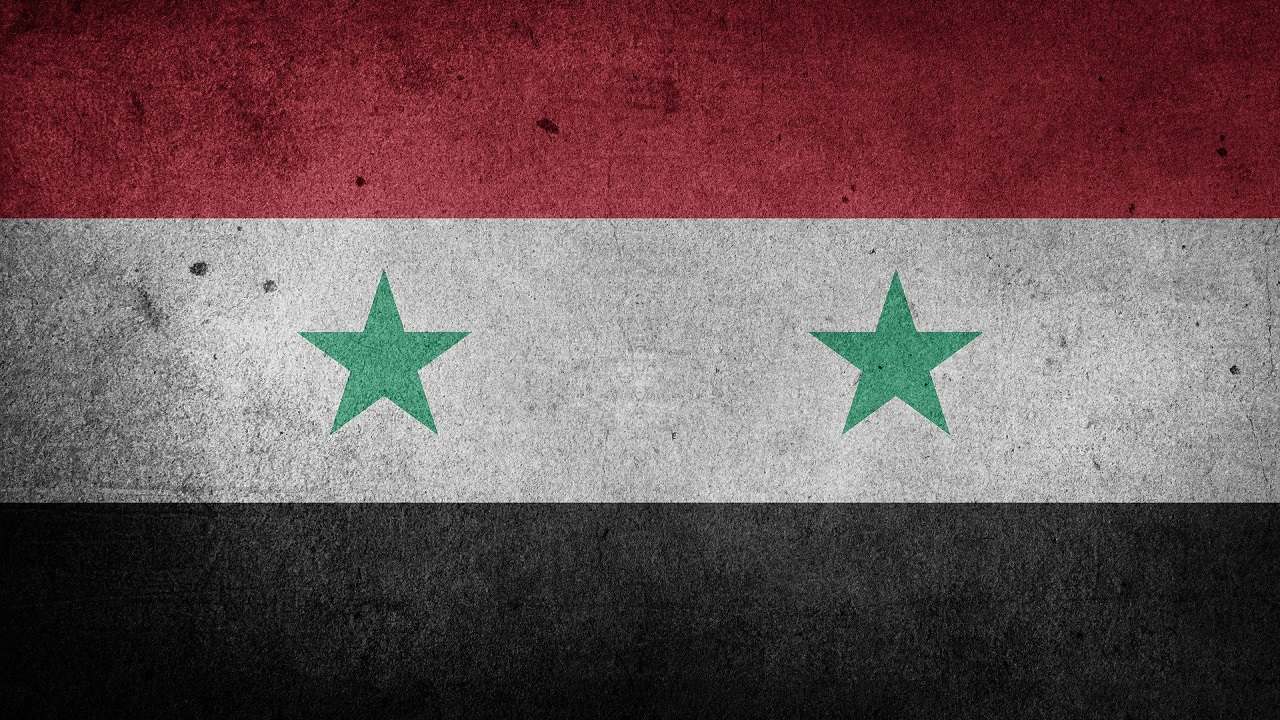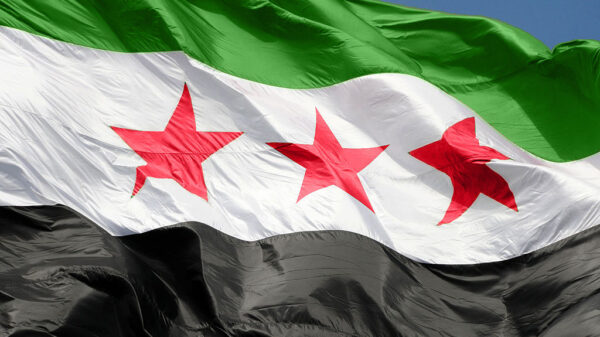Guest contributor Irfan Chowdhury on the sectarian nature of the ongoing conflict in Syria. This article is the second of a two-part series.
In Part I of this article, I discussed how the Syrian uprising began with peaceful pro-democracy demonstrations in the Spring of 2011 (which were violently repressed by the government), and how it then escalated into an armed struggle against the government by the end of the year; the majority of Alawites and Christians supported the government, while the opposition was almost entirely Sunni (although some Sunnis continued to support the government).
I went on to explain how in 2011 and throughout most of 2012, the Free Syrian Army (FSA) was the dominant group within the armed opposition – it was materially supported by America, Britain, France and Turkey, and although it advocated democracy, it often carried out military operations in co-operation with the Saudi/Qatari/Turkish-backed Salafist groups (which advocated the establishment of a non-democratic Islamic state).
Within the first several months of its creation in 2011, the FSA made an effort to be inclusive and recruited members from minority sects, including a small number of Alawites, although it was almost entirely Sunni. However, over the course of 2012, its behaviour became increasingly sectarian as the government continued to commit abhorrent crimes.
For example, in June 2012 (four months after the government began laying siege to Homs, with devastating humanitarian consequences), the FSA laid siege to two Shiite villages – Nubl and Zahra – in cooperation with Salafist groups. The siege lasted for four years, and during that time the inhabitants were denied adequate food and medical supplies, which led to the deaths of at least 500 civilians (100 of whom were children).
The FSA’s participation in this siege may have been partly a consequence of a phenomenon that Nir Rosen reported in February 2012: “Interestingly, anti-Shia feelings among the opposition are more predominant than anywhere I have ever been, even though there are few Shia in Syria. This is mostly a response to the support, whether material or rhetorical, that the regime receives from Lebanon’s Hezbollah and from Iran – and the betrayal many Sunni opposition supporters feel over Hezbollah’s siding with Assadâ€. Many Sunni opposition supporters regarded the Shia minority in Syria – who constitute only 2% of the population – as being loyal to Iran.
In August 2012, openDemocracy published a piece by a Syrian opposition activist named Rita who described an incident in which an FSA battalion in Damascus arrested two young Alawite men at a checkpoint – civilians – and summarily executed them by the side of the road. The FSA fighter whom she interviewed for the piece – a man named Samer, who was one of those in the battalion and called for the civilians to be executed – explained this sectarianism as follows: “The regime is the one who made us sectarian when it killed and tortured people from our community. The Alawis and all of those who have stood by the regime must bear the consequences of the injustice that has been inflicted on usâ€. This corresponds with Rosen’s observation at the time that the “security crackdown and the loyalty most Alawites have to the regime have… increased anti-Alawite sentimentâ€.
Christians were also targeted due to their association with the government. In September 2012, Robert Fisk reported from the town of Maaloula that the FSA had kidnapped Christian civilians there, and in November 2012, FSA fighters took over Christian areas of Aleppo, setting up checkpoints, placing snipers on the rooftops of buildings and occupying a Christian school, which prompted the locals to fight back.
Meanwhile, attacks on Alawites continued; in December 2012, Channel 4 News reporter Alex Thomson revealed how FSA fighters invaded the Alawite section of the town of Aqrab and took around 500 Alawite civilians hostage for nine days, apparently to use as human shields against bombardment from government forces. Thomson describes the conditions in which the hostages were held as follows: “Almost no food was delivered, and women were hitting their own children to try and stop them crying. When it rained, they were holding rags out of the window to soak up and drink the moistureâ€.
The civilians were eventually released after negotiations between the FSA and village elders. While the government was ruthlessly bombing, besieging and massacring civilians in opposition-controlled areas, which led to thousands of deaths and systematically torturing members of the opposition (including peaceful activists), it was simultaneously providing weapons to minority communities so that they could defend themselves from the FSA and the Salafist groups.
In addition to the FSA’s increasingly sectarian behaviour, minority communities were subject to sustained, ideologically motivated attacks from the Salafist groups. The Christian/Druze town of Jaramana suffered repeated car bombings throughout 2012, Christians were expelled from Homs and Qusayr over the summer of 2012, and Shia mosques were attacked in northern Syria and Alawites were expelled from Idlib towards the end of 2012. The UN reported in December 2012 that the Syrian conflict had become “overtly sectarian in natureâ€. The Salafist groups were proving to be much more effective in battle than the FSA, and FSA fighters were also increasingly defecting to these groups.
In November 2012, Jabhat al-Nusra (the Syrian al-Qaeda affiliate which publicly stated that it sought the expulsion of Christians, Alawites and Shiites from Syria) was described by The New York Times as “among the most experienced and disciplined among the forces fighting to topple Assadâ€. Along with the other Salafist groups, it received weapons from Qatar and Turkey, while Saudi Arabia allowed private citizens to fund it.
Hamza al-Mustapha has noted in his academic study of al-Nusra, “The al-Nusra Front: From Formation to Dissension” that it had “legendary status†among the rebels by late 2012 because of its impressive performance in battle against the Syrian Army, to such an extent that “entire battles were cancelled or suspended because the Front refused to participate and join the attackâ€. Al-Nusra has since rebranded as Hay’at Tahrir Al-Sham (HTS) – the organisation which currently controls Idlib. HTS continues to receive weapons and logistical support from Turkey.
Three notable sectarian massacres were perpetrated by the Salafist groups in 2013: the Latakia massacre (against Alawites), the Hatla massacre (against Shiites), and the Adra massacre (against Christians, Druze, Alawites and Shiites). There were cases of men and women from minority communities being raped by Salafist militants. Meanwhile, the Syrian Army routinely carried out massacres and rapes during campaigns to recapture opposition-controlled areas.
Once these areas were under government control, however, minority communities were generally secure as they were no longer threatened by the Salafist groups; an illustration of this is that Christians in Qara and Qusayr expressed gratitude to Hezbollah for helping to retake both areas from al-Nusra. Most Sunnis who lived in government-controlled areas were also able to experience relative normality and security, as opposed to those who lived in opposition-controlled areas who were subject to collective punishment by the government as well as, increasingly, a deeply conservative interpretation of Sharia Law that was instituted by the Salafist groups.
Over the course of 2013, weapons that America was supplying to the FSA ended up in the hands of al-Nusra fighters due to ongoing defections. That same year, Britain opened up communications with some of the Salafist groups and attempted to forge an alliance among them, and Israel began providing medical aid to al-Nusra fighters in the occupied Golan Heights as part of its strategy of keeping Hezbollah away from the border. Meanwhile, Saudi Arabia, Qatar and Turkey continued to provide support to the Salafist groups, including al-Nusra. By the end of 2013, the FSA had essentially ceased to exist as a distinct organisation; there were still secular and moderate Islamist fighters, but they were playing a marginal role.
This trend of increasing radicalisation in the armed opposition, aided by foreign powers, partly resulted in the emergence of ISIS in 2013; as Charles Glass has observed: “ISIS came along to supersede the FSA, as the FSA had replaced the [pro-democracy] protesters. ISIS was more combative, more ruthless, better financed, and more effectiveâ€. As ISIS rapidly conquered territory throughout 2014, it attempted to exterminate Yazidis, Kurds, Christians, Druze, Alawites, Shiites and Ismailis. Turkey facilitated the flow of foreign ISIS fighters into Syria and allowed ISIS to run logistical lines across the border. Meanwhile, America began directly bombing ISIS-controlled territory in Syria in 2014, and Britain and France joined the campaign in 2015, thus de facto intervening on the side of the government.
While ISIS was waging its campaign of extermination against minorities, the other Salafist groups continued their own attacks on minorities; between 2015 and 2018, the Saudi/Qatari/Turkish-backed Army of Conquest coalition (which included al-Nusra, whose fighters were still using American weapons) laid siege to al-Fu’ah and al-Kafriya, two Shiite villages in Idlib, and vowed to massacre the 17,000 civilians who lived there. Civilians within the villages were regularly shelled, and in 2017, a convoy of buses that were being used to evacuate civilians from the villages was blown up in a suicide attack, killing at least 100 people.
The government (in co-operation with the Russian air force) continued to kill tens of thousands of civilians through its strategy of total war against the opposition, while American, British and French bombing of Raqqa in 2017 killed at least 1,600 civilians and left it the most destroyed city of modern times.
The armed opposition is now almost entirely composed of Salafist groups which are barely different from ISIS. Examples of their behaviour can be found in the Kurdish city of Afrin, where for the past two years they have been raping women and children and looting property (with direct Turkish and indirect American and British support).
Minorities in Syria (with the exception of Kurds, who have created their own autonomous region) overwhelmingly side with the government because the alternative is their expulsion or extermination by the Salafist groups. The majority of Sunnis are not fighting against the government, partly because most do not adhere to the ultraconservative interpretation of Islam espoused by the Salafist groups. In government-controlled areas, there is religious tolerance and everyone is free to live a secular lifestyle. This cannot be said of opposition-controlled areas.
The government has committed war crimes and crimes against humanity throughout the conflict (this article by the respected journalist Yvonne Ridley on the government’s systematic use of rape against female political prisoners provides an insight into the sadistic nature of the security apparatus that Assad has established). What is required for Syria is a war crimes tribunal so that all sides are held accountable for their violations; this is something that only countries with clean hands in Syria can pursue.
It is the responsibility of all participants in this horrendous conflict (both internal and external) to repair the destruction that they have collectively inflicted on Syrian society so that all Syrians – regardless of their religious or political affiliations – can live in dignity.
















